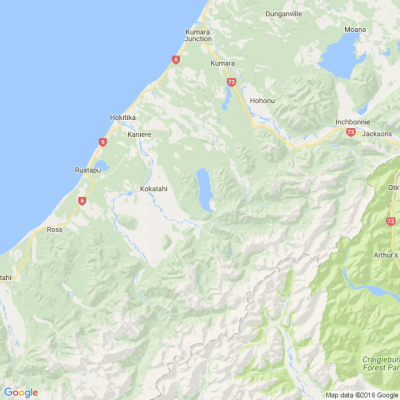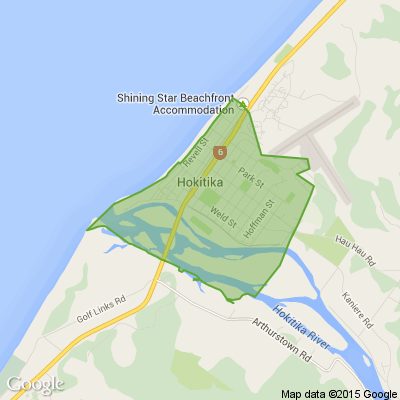Councils warn Coast to be penalised in road funding change
By local democracy reporter Brendon McMahon:
Changes to emergency work provisions in the National Transport Fund will cut local road funding and hurt West Coast communities, say the region's four councils.
In a joint submission, the Buller, Grey, and Westland district councils along with the West Coast Regional Council, have called for greater interagency collaboration in "a cohesive approach" to road planning and investment.
The submission will be tabled at the regional council's Resource Management Committee next week.
They are concerned changes to the funding of emergency works under the NZ Transport Agency (NZTA) Emergency Works Policy Review will leave areas like the West Coast worse off - at a time when extreme weather is closing its roads with increasing frequency.
"The likely consequence is a reduction in level of service on local roads, reduced maintenance, and unintended negative social and economic consequences for local communities and tourists," the joint submission says.
The councils acknowledge both they and the NZTA are challenged to "sustainably fund" road fixups in the face of the increasingly intense weather related events.
But they say while the emergency work provision review helps NZTA to address pressure on the National Land Transport Fund, the proposed changes to the eligibility criteria and funding assistance rates "will transfer considerable costs" to local councils.
District councils are already under "extreme pressure" to fund core road maintenance, operation and renewal, the submission says.
"More frequent and intense storm events resulting in flooding of roads and instability of adjoining land have highlighted the vulnerabilities of the West Coast road network."
The resulting disruption sometimes saw "displacement" of its communities with very prominent examples including "stranded tourists".
Other big impacts were the inability to move fast moving consumer goods and freight, the impact on the region's primary industries, and the loss of access to the DOC estate including the great walks in the region.
"The likely consequence of the proposed policy changes - in conjunction with forecast intensity and frequency of future weather events -
- is a reduction in level of service to our communities and businesses," the submission says.
The potential for longer or permanent road closures, loss of access, and "unintended negative social and economic consequences" were real consequences.
The Coast councils are particularly worried at the proposed change to the qualifying return period for an emergency event, for central government road repair funding, to a minimum frequency of a one-in-20-year event.
"This is a significant event size increase, and as event return periods are changed as climate models are updated, it is likely that a qualifying 1-in-20-year event today could soon be a non-qualifying 1-in-15-year event."
Further, Niwa forecasts for weather related events to 2040 predicted increased intensity of cyclones, short term high intensity rainfall event by plus 4.7% for every 1C increase.
The councils are also concerned the change to subsidy provisions for local road controlling authorities who cannot afford to pay for road fixes after a major event will penalise areas with high deprivation.
As an example the Buller District Council, a high deprivation area, was still recovering from the 2021 and 2022 storm events which represented about $16.5 million of capital works now being completed on its roads.
That had only been possible due to a bespoke 95% subsidy via the NZTA.
"Without this support the community of Buller ... would not have been able to deliver this return to service for our communities."

Poll: Should the government levy industries that contribute to financial hardship?
As reported in the Post, there’s a $30 million funding gap in financial mentoring. This has led to services closing and mentors stepping in unpaid just to keep helping people in need 🪙💰🪙
One proposed solution? Small levies on industries that profit from financial hardship — like banks, casinos, and similar companies.
So we want to hear what you think:
Should the government ask these industries to contribute?

-
59.8% Yes, supporting people is important!
-
25.9% No, individuals should take responsibility
-
14.4% ... It is complicated
A Neighbourly Riddle! Don’t Overthink It… Or Do?😜
Do you think you know the answer? Simply 'Like' this post if you know the answer and the big reveal will be posted in the comments at 2pm on the day!
If you multiply this number by any other number, the answer will always be the same. What number is this?

Have you got New Zealand's best shed? Show us and win!
Once again, Resene and NZ Gardener are on the hunt for New Zealand’s best shed! Send in the photos and the stories behind your man caves, she sheds, clever upcycled spaces, potty potting sheds and colourful chicken coops. The Resene Shed of the Year 2026 winner receives $1000 Resene ColorShop voucher, a $908 large Vegepod Starter Pack and a one-year subscription to NZ Gardener. To enter, tell us in writing (no more than 500 words) why your garden shed is New Zealand’s best, and send up to five high-quality photos by email to mailbox@nzgardener.co.nz. Entries close February 23, 2026.







 Loading…
Loading…





